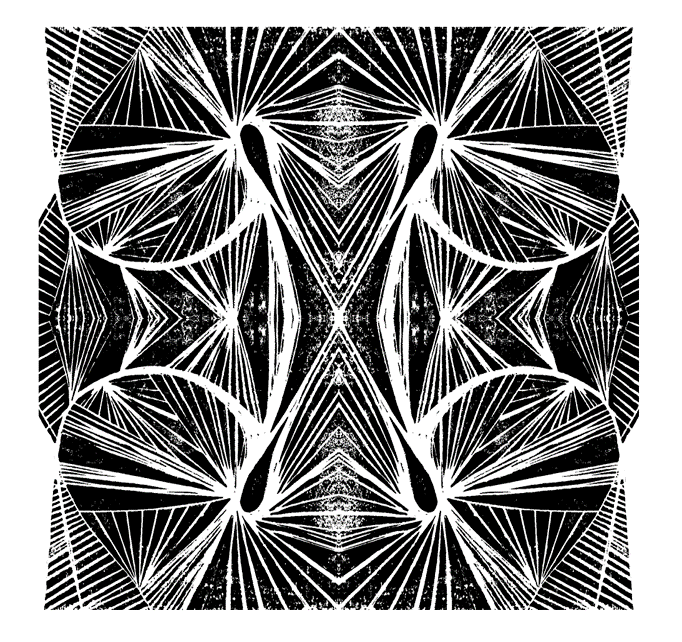“The BOX Will See You Now”: An Interactive Artwork Exploring the Influence of AI in Medical Diagnostics
Exhibition Opening: “The BOX” with Panel Discussion on “Transformative Spaces: Science-Art Residencies” on Friday, April 5, 2024, 18:00-20:00, Informatics Forum and Inspace Gallery as part of the Edinburgh Science Festival
The potential benefits of using AI technology in healthcare are enormous. However, there are significant practical, technological, and legal implications that must be considered to protect patients. The BOX is an interactive installation that explores the “black box” aspect of AI technology, posing the question: If we feed AI with incomplete or biased data - can we then expect it to make reasonable suggestions?
In November, Scottish artist, scientist, and physician Fiona Smith visited Fraunhofer MEVIS in Bremen to develop an interactive art installation as part of the “STEAM Imaging V” residency program. With the theme “Holding the ‘Digital’ in Medicine to Account,” participants aim to look beyond the promises of new technological developments and data-driven tools. The goal is also to help prospective students gain a critical understanding of AI-driven applications in the healthcare sector, which increasingly permeates the interaction of all participants in the development process.
AI algorithms are now found in many areas of everyday life, including medicine, where they gradually make their way: AI programs recognize patterns in X-ray images that indicate diseases or support the search for active substance candidates for new drugs. However, numerous legal and ethical questions arise, especially in healthcare: What does an AI do with medical data, i.e., sensitive information about a person? How do we prevent that an algorithm is trained one-sidedly, so that does not produce biased and discriminatory results, leading to problematic therapy decisions? And how can it be ensured that both professionals and laypeople can understand how an AI comes to its decisions?
Smith dedicated herself to these aspects as part of the “STEAM Imaging V” residency program. The young Scot, who is doing her PhD at the University of Edinburgh on an AI topic, is also active as a doctor and artist. She applied with the idea for an interactive installation named The BOX, where the audience can feed data to an AI and then observe how the machine reacts.
In November 2023, Smith spent two weeks at Fraunhofer MEVIS in Bremen to exchange ideas with the MEVIS experts: “It was an interesting mix of mathematics, physics, art, philosophy, medicine, and software development,” she enthuses. “We had remarkable working conversations that continued over lunch.” Among other things, the participants reflected on how artistic means can convey that when an algorithm has to make a decision, there can indeed be uncertainties. These decision boundaries can subtly change, and even tip into the arbitrary, even though the AI might appear confident.
An integral part of the residency program is a STEAM workshop for students in Bremen and Edinburgh, which the artists conduct together with the MEVIS experts. “The two days in Bremen were intense, but fantastic,” the artist says. “The young people quickly picked up our thoughts about the regulation and ethics of artificial intelligence.” Among other things, participants were able to slip into the role of an AI to diagnose skin cancer. This role-play promoted understanding of how important representative datasets are for training AI. It also became clear that models show weaknesses if later test data deviates too much from the training data – the software cannot predict things it has never seen before. “The discussions with the young people helped me to refine the concept for my installation,” says Smith. “It became clear to me that AI models have a somewhat mythical presence among young people, yet they recoil at the idea of being treated by an AI themselves.”
Back in Edinburgh, Fiona Smith updated her concept and discussed and developed the design with Fraunhofer MEVIS, Inspace production team and specialist technicians across the Institute for Design Informatics and the University of Edinburgh. “It got pretty big pretty quickly,” Smith emphasizes. “In the end, a combination of several interactive sculptures came out, including an elaborate lighting design.”
And what can people expect at the Inspace Gallery? “The BOX invites people to enter a kind of futuristic clinic for hand surgery,” describes Smith. “They can slip into the role of patients undergoing an unusual examination.” Their hands are scanned, and the system spits out a coded test result. Subsequently, people find themselves as a kind of data point in the box, where an AI algorithm makes a decision about the treatment.
“By doing this, I want to tear down the barriers of the black box and convey how complex the algorithms and the mathematics behind them are,” explains Fiona Smith. It is important, for example, that an AI can only provide useful results if it has been fed with high-quality data beforehand. For Smith, these training data should represent the parts of the population for which the model is intended. And they should be collected in a fair and ethical manner and in compliance with legal regulations. “My hope is that my installation raises questions among people and makes them think critically when they hear something about AI models and their regulation,” says Smith – and laughs: “But of course, people should also have fun when they engage with The BOX.”
STEAM Imaging V is a creator residency of the Fraunhofer Institute for Digital Medicine MEVIS in Bremen, Germany, in collaboration with the International Fraunhofer Talent School Bremen, the Schulzentrum Walle in Bremen, and the Institute for Design Informatics at the University of Edinburgh in the UK. It is supported by Ars Electronica in Linz, Austria.
 Fraunhofer Institute for Digital Medicine MEVIS
Fraunhofer Institute for Digital Medicine MEVIS

